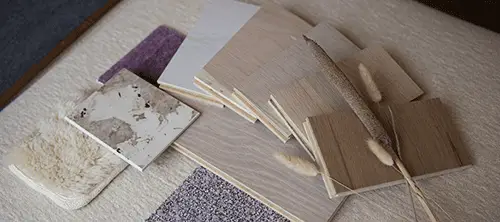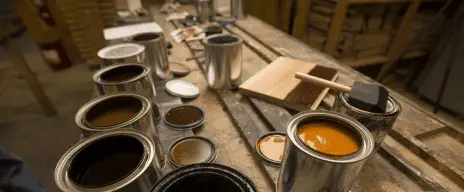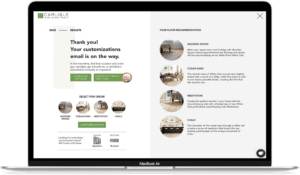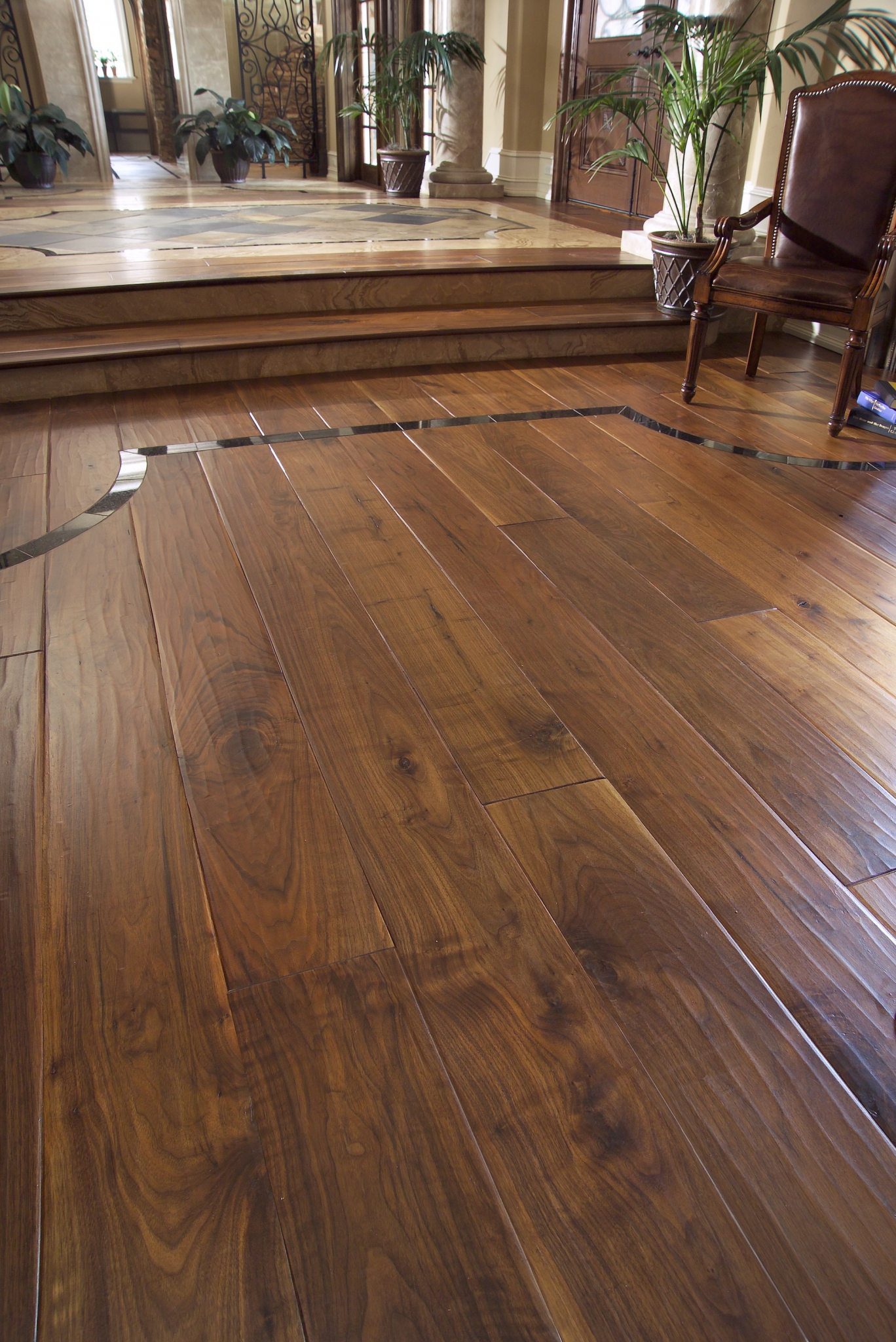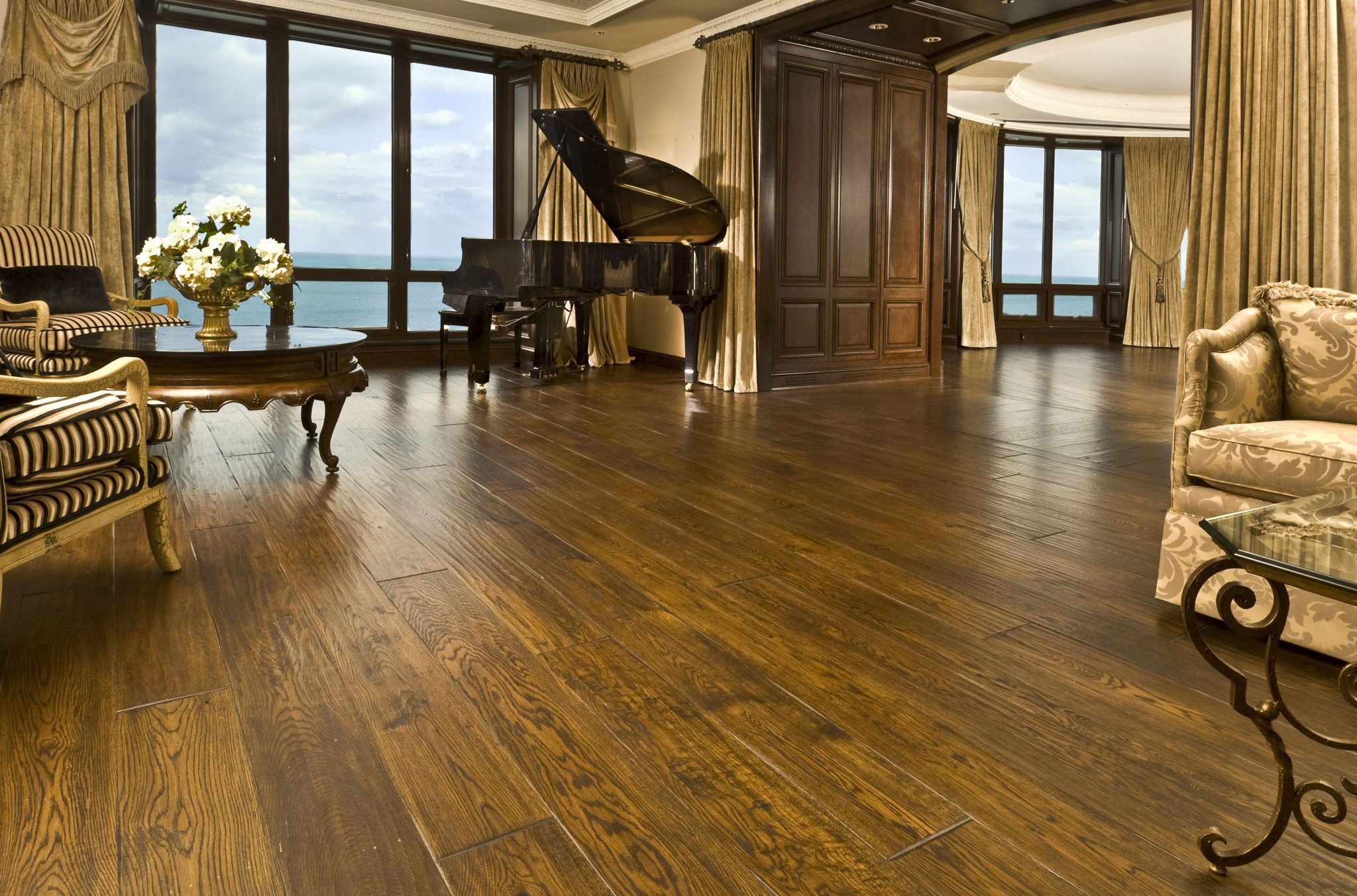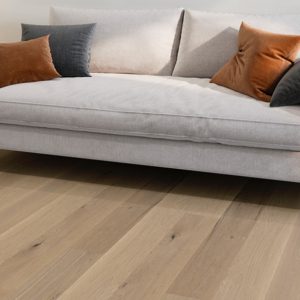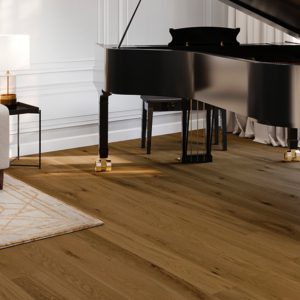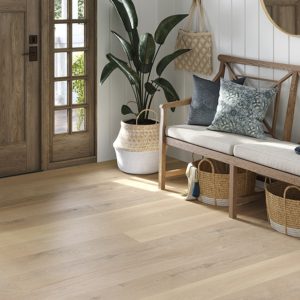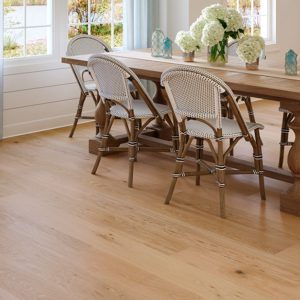Talk with us today about your project. We make it easy to browse, design, select and plan for your new wide plank floors with your own personal Carlisle Wide Plank Floor Specialist.
You have questions, we have answers. Explore the most frequently asked questions about hardwood flooring below. Need assistance or want to know more? Contact Carlisle or call 800-595-9663 today to get all your inquiries answered.
What Will Ruin Hardwood Floors?
Hardwood floors may be ruined or damaged in various ways. Too much sunlight will discolor the floor over time. Area rugs with the wrong type of backing can stain the floor or trap gases that will warp the floorboards. Vacuuming the floor with brush attachments or beaters can leave marks and scratches. High heels can create indentations on floors, and the nails and claws of dogs and cats can scratch up floors as well. Some cleaning solutions are too abrasive or harsh and will cause the finish to erode. Sliding heavy furniture will almost certainly scratch up a hardwood flooring surface. Steam cleaning a hardwood floor can cause water damage and warping.
What’s the best way to protect hardwood floors?
Clean up spills quickly to prevent water damage. Avoid wearing shoes inside the house, keep pets’ nails trimmed and use rugs or runners in high-traffic areas to limit scuffs and scratches. Use mild cleaning products and keep the floor swept and vacuumed to eliminate dirt and debris that can cause scratches. Finishing your floor with a highly durable sealant is one of the best ways to protect it.
What is the toughest finish for hardwood floors?
Aluminum oxide is considered the toughest finish for hardwood floors. But because this sealant must be applied with special equipment under factory-controlled conditions, aluminum oxide is only available in prefinished flooring. Water-based or oil-based polyurethane are highly durable and popular alternatives. Polyurethane sealants are a liquid plastic substance that will dry to form a hard, protective, moisture-resistant coating for a wood floor.
What’s the most durable hardwood for flooring?
Many different kinds of wood can be used to create a durable flooring surface. Some woods like Hickory are extremely hard, making them more resistant to dents and scratches. While White Oak is less hard than Hickory, it is naturally more resistant to moisture, which is why it’s often used to build boats and make wine barrels. Pine wood is considered quite soft compared to hardwoods like hickory, but the fibers in a Pine floorboard will compress over time as the floor is walked on, creating a highly durable surface. This is why you’ll find often find Pine floors in early New England homes that are hundreds of years old.
What type of wood flooring is best for a bathroom?
Since bathroom floors are exposed to higher levels of relative humidity and changing temperatures, an engineered wood floor is considered an ideal choice. Alternately, a more moisture-resistant hardwood like White Oak may work well in a bathroom. Reclaimed floors are another option, since any spills or water damage to the wood will blend in easily with the floor’s worn appearance.
What is engineered wood flooring?
Engineered wood flooring is made with floorboards that are constructed from multiple layers of material to produce a strong core that is less likely to expand or contract when exposed to greater levels of relative humidity. Engineered wood floorboards are made with a veneer of solid hardwood that’s adhered to multiple plies or layers of backing material. Engineered floors are also an excellent choice for installation in laundry rooms, over radiant heat and concrete slabs, and in basements or other locations below grade.
Do engineered wood floors scratch easily?
Not necessarily – engineered floors are no different from solid hardwood floors when it comes to scuffs and scratches. Engineered floors made with a veneer of softer hardwoods like Cherry or Walnut will scratch more easily than engineered floors made with harder woods like Hickory and Maple.
What are prefinished floors?
Prefinished floors are made with boards that have been cut, sanded, stained and sealed in a flooring factory and are delivered ready for installation. Prefinished floors allow homeowners to avoid the sawdust from sanding, the odor from sealants and the inconvenience of having to vacate the home for several days while the floor is sealed.
Are prefinished hardwood floors better than unfinished floors?
Finishing a floor in factory-controlled conditions enables a more consistent and uniform finish across all boards. Prefinished floorboards can also be sealed on all sides of each plank using stronger sealants that offer more protection. Installing a prefinished floor is much faster than installing an unfinished floor, though the seams in a prefinished floor may be more noticeable, since the floor is not sanded after it is installed.
Is it ok to leave hardwood floors unfinished?
Hardwood floors may certainly be left unfinished – many homeowners appreciate the natural look of unfinished wood and don’t mind that the floorboards will wear and age more quickly. To ensure the longevity of unfinished floors, special care must be taken to clean up spills quickly and to keep floors clear of dirt and debris that can cause scratches.
What are reclaimed hardwood floors?
Reclaimed hardwood floors are made with floorboards cut from timbers salvaged from old barns, farmhouses, factories and other buildings destined for demolition. The wood in a reclaimed floor will have a worn and weathered appearance, retaining all the nail holes, cracks, splits, wormholes, saw marks and discoloration of older wood, giving the floor a greater sense of character and visual appeal.
What are wide plank floors?
Wide plank floors are made with floorboards that are 5” to 20” wide – much wider than standard commercial flooring which is 3” wide or less. Wider and longer planks mean fewer seams in the floor, helping a room to seem larger and the floor to seem less “busy.” Wide plank floors are prized for the sense of luxury and elegance they create and for the way they allow the natural grain and beauty of the wood to emerge.
What type of floors does Carlisle offer?
Carlisle Wide Plank Floors offers a broad range of solid hardwood, engineered hardwood and reclaimed wood flooring, including prefinished floors and floors that can be finished on-site. Every Carlisle floor is handcrafted to the exact specifications of the home or business owner and can be customized through a wide variety of choices for wood species, wood grade, stain color, texture, pattern and more.
